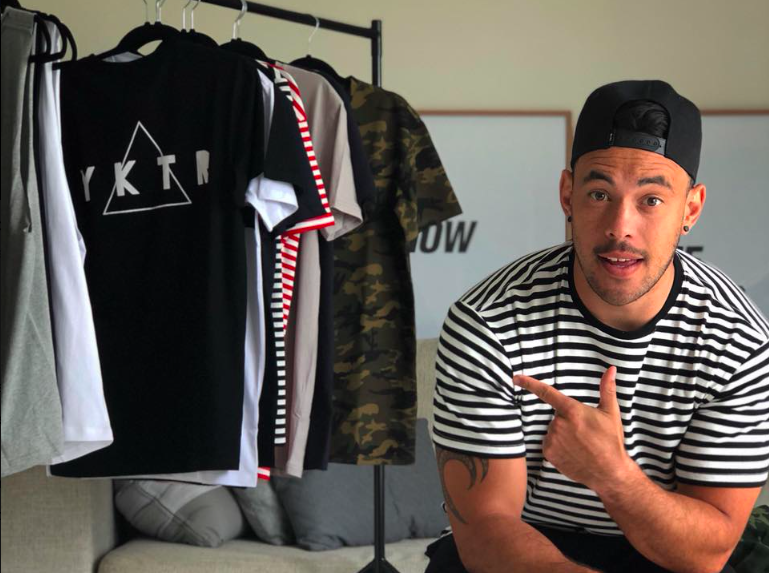The old adage is that athletes die twice: the first time being after retiring from their chosen sport.
Indeed, adapting to life beyond the sporting arena is often a competitor’s greatest challenge. While some are fortunate to walk into media or coaching careers, others struggle with reality. Retirees describe feeling isolated and vulnerable in the absence of sport’s protective bubble. For many, it’s all they’ve known.
Mental health issues, binge drinking and substance abuse are common pitfalls of former athletes who’ve lost their way. Ben Cousins and Grant Hackett are recent examples of champions who succumbed publicly in retirement. Thousands more battle on in obscurity.
Rugby league was no different, but concerted efforts by the NRL are paying off and reversing that trend. Preparation for life after sport is encouraged earlier, helping reduce what was a giant leap into the unknown to a gentle step into the future.
Former NRL player Isaac John is at the forefront of this movement. Once touted as a potential superstar, his career hit a roadblock because of injuries. After stints at the Warriors, Panthers and Sea Eagles, and a season in the UK Super League and a lone Test match for New Zealand he struggled to regain form and retired from rugby league last year at 28 – what should have been the prime of his career.

“In the scheme of the NRL, I [became] an average player, and I knew that,” John told Hatch. “[Retiring] was like a weight off my shoulders because I’d been thinking about it for a few years.” Before hanging up his boots, John had been selling T-shirts as a hobby alongside his housemates and close friends, fellow NRL players Corey Norman and James Segeyaro, under the brand name YKTR. The name stood for “You know the rules” – an in-joke at their home.
“The [business] concept we kind of fell into. I made a T with YKTR printed on it; the boys got some made as well. Someone asked if they could buy one. It started from there. I wish I had a better story.”
The notion of turning it into a serious streetwear clothing label was enticing, but time was scarce amid football commitments – until a pectoral tear in the opening round of the 2016 season provided the perfect chance for John to go for it.
He created the first YKTR website immediately after surgery while still in a sling. The opportunity to make a business of it excited John: “I always wanted to be in business. I have a legitimate fear of working for someone else. I have a fear of being 80 and thinking, ‘Fuck, I wasted my life’.”

Two years down the track YKTR has grown substantially, becoming entrenched in the streetwear market and forging a strong customer base that includes many NRL stars. Recently, they opened an office and sold out their sixth clothing collection within days. Norman and Segeyaro are still footballers first and foremost but contribute designs and help market the line through social media. John runs all day-to-day aspects of the business which often keeps him busy from dawn to midnight.
They promote the lines through vlogs, filmed and edited by John, that give fans an insight into the world of professional sport while getting to know the trio behind the brand rather than “shoving T-shirts in their face”.
“I feel through vlogging people have gotten to know us pretty well. We don’t hide anything and I think it makes us more relatable,” said John. “People will want to support you if they know who you are and what you’re about. I’ve had people say that they will never buy our clothes, but they love watching our vlogs after a hard day’s work because they get a laugh out of it. That’s a win for us.”
More league players are following the lead of John, Norman and Segeyaro by exploring off-field ventures. St George Illawarra veteran Jason Nightingale runs a business school tailored to elite athletes; ex-Dragon Dan Hunt founded a mental health awareness organisation; South Sydney forward David Tyrrell moved into the corporate world as a recruitment consultant; and Tigers stalwart Chris Lawrence balances directorship of a health and lifestyle company with playing and training duties. Many players now pursue university degrees and other tertiary qualifications promoted by the NRL.
They may seem polar opposites, but business and sport both demand tenacity, commitment, long hours and endless sacrifice – which helps league players make the transition seamlessly.
John sees other parallels between league and business: “It’s like winning [one] game of footy. It’s great at the time, but you see yourself winning the whole comp. That’s how I’m thinking.” – Troy Whittaker
Main photo from YKTR’s Facebook page.


